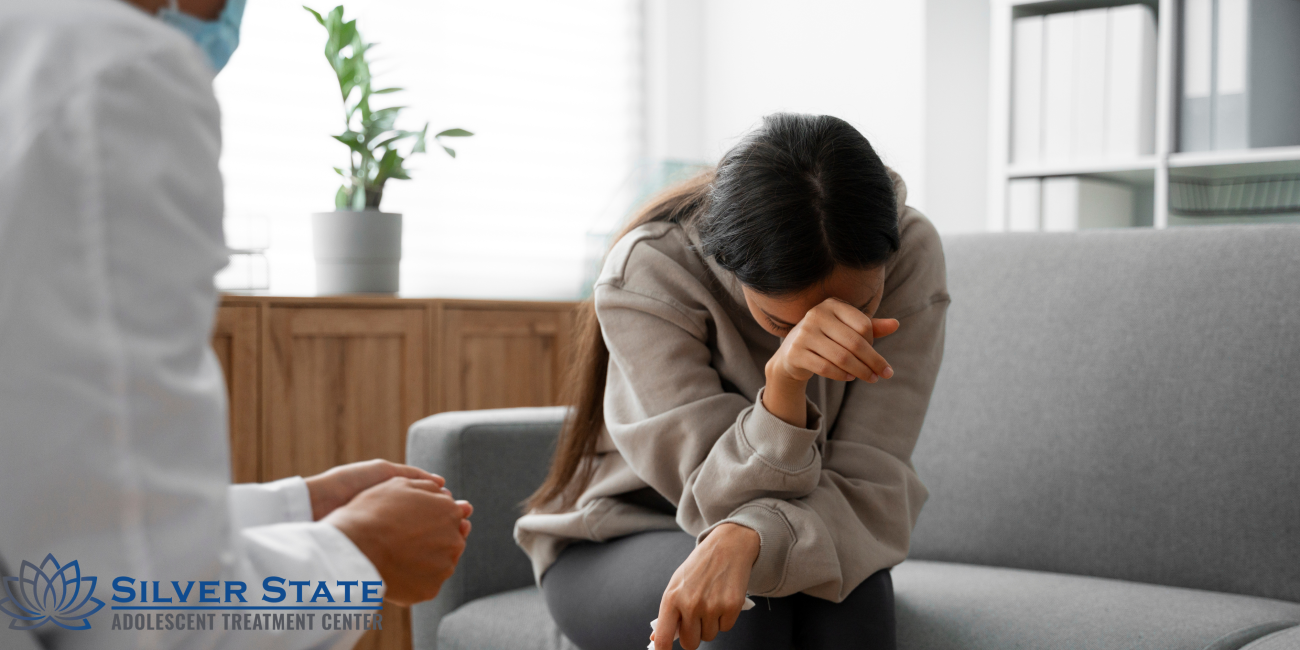Depression Treatment Facilities and Their Role in Healing Minds

Table of Contents
Key Takeaways:
- Depression treatment facilities provide important structured settings that include therapy, medical care, and support services to help people heal their minds.
- Teenage depression treatment needs specialized care: customized techniques and therapies that are right for their age lead to better results.
- There are several types of programs for youth with depression, including residential, outpatient, and day programs. Each one serves a particular purpose and is appropriate for a different level of severity.
- Teen treatment centers in places like Las Vegas and Henderson offer local help from trained specialists, helping teens integrate into their communities.
- Combining evidence-based treatments, such as CBT, medication management, and family therapy, with accredited facilities increases the likelihood of recovery.
Introduction
When people or families need full care, depression treatment facilities are like beacons of hope. They offer structured, interdisciplinary approaches that are designed to help people recover from mental illness. These places offer everything from individual and group therapy to mental examinations and medication management, which helps patients start to heal in a safe setting. These facilities are considerably more important for teenagers. Teens with mental health problems need special care because they are going through specific developmental hurdles and societal demands. High-quality depression treatment facilities are able to provide this care.
Why Do Teens Need Specialized Depression Treatment?
Teenagers who are depressed need different kinds of help from adults. Depression in teens is different from adult variants. Symptoms typically include irritation, a decline in school performance, social disengagement, and occasionally physical complaints such as stomachaches or headaches. As kids grow up, their hormones fluctuate, their social lives change, and their sense of self changes, all of which make mental health even more difficult. National numbers show how urgent the situation is: over 20% of U.S. teens report having depressed symptoms every year, but only about 40% get any therapy (National Institute of Mental Health). This gap in treatment underscores the importance of having programs that are easily accessible and tailored to meet each individual’s unique needs.
What Are the Different Types of Depression Programs for Teens?
Outpatient and Day Programs
Many places offer care that isn’t overnight or only for part of the day. These include therapy sessions for individuals, families, and groups, as well as medication management. At the same time, they keep teens connected to their homes and schools. These kinds of Teen Depression Treatments are ideal for mild to moderate cases.
Living and Inpatient Settings
For more serious problems or emergencies, such as thinking about suicide, psychiatric residential care offers organized environments with 24/7 supervision. These places are all about stabilizing, building skills, and planning for the future. Academic hospitals, like McLean Hospital, also provide inpatient care that is based on research and evidence.
Which Therapies Are Most Effective in Teen Depression Treatment?
- Cognitive Behavioral Therapy (CBT) is a well-known first-line therapy for teens and adults that works very well to ease symptoms of depression.
- Moderate to severe depression in teens is often treated with medication, especially SSRIs like fluoxetine. When used in conjunction with therapy, it works more effectively than either one alone.
How Do Family and Community Play a Role in Teen Recovery?
Programs that focus on whole-person care, such as incorporating families in therapy to help with communication and calm down situations, are highly effective. This is also observed by the University of Rochester Medical Center, as the family can give the teen hope. Working together with schools makes sure that school and social life stay the same. Working with community services can help people get better and keep them from relapsing. In many facilities,Teen Anxietyis also treated simultaneously because it often co-occurs with depression. Also, giving teens screening tools like the PHQ-9 during regular visits helps find and refer them to the right treatments for teenage depression early on.
How to Help Teens with Depression in Las Vegas
Families in Las Vegas looking for Las Vegas teen treatment can use institutions that are based on the finest practices in adolescent mental health. Nevada’s regional centers offer outpatient, inpatient, and day-school programs that are capable of providing evidence-based care that is appropriate for the cultural and community settings in which they operate. This makes it easier for people to get help.
What Else Should Parents Know About Teen Mental Health Care?
Comprehensive programs generally deal with conditions that happen at the same time as others, like anxiety. Teenagers with anxiety need integrated treatment because sadness and anxiety often go hand in hand. Long-term mental health is supported by facilities that offer both therapy courses. Teen mental health treatment after the fact, such as follow-up appointments, therapy check-ins, and family support, is very important for maintaining progress and preventing recurrence.
Improving the Mental Health of Teens
Good Teen Mental Health programs do more than just help with symptoms. They build resilience by teaching life skills, making friends, and being involved in the community. Teens can get their youth back with confidence through workshops, peer support, and recreational therapies. This helps them stay on the road to recovery.
Conclusion
Depression treatment facilitiesare very important parts of the infrastructure for adolescent mental health care because they offer structured, multidisciplinary, and evidence-based care. These places help kids and their families heal from depression in teens by offering both residential and outpatient programs, as well as therapies like CBT, and medication management. If you need help getting over teenage or adolescent depression, contact Silver State Adolescents. They are the experts in treating teenage depression and mental health in Las Vegas. Silver State Adolescents is here to help you. Get in touch with us today: Call Tel: 725.525.9897.
How Can Residential Care Complement Treatment at Depression Treatment Facilities?
Residential care options can significantly enhance recovery by providing a supportive environment for individuals transitioning from depression treatment facilities. These options offer continuous assistance, structure, and access to therapeutic resources, enabling patients to practice coping strategies in real-life situations. This seamless integration improves emotional stability and fosters long-term healing.
FAQs
1. What Kinds Of Treatment Do Adolescent Depression Centers Offer?
Individual, group, and family therapy (typically CBT), medication management, help with schoolwork, and sometimes new methods like TMS are also part of treatment.
2. How Can Parents Tell If Their Kids Are Depressed?
Look for signs of ongoing depression or anger, lack of interest, changes in sleep or eating, a drop in grades, isolation from friends, and talk of hopelessness or self-harm.
3. Are Medicines Safe For Teens?
Yes, the FDA has approved SSRIs like fluoxetine, and they are safe when monitored. When used in conjunction with therapy, they are more effective in reducing symptoms.
4. What Is The Difference Between Treatment At Home And Treatment At A Hospital?
Residential programs provide structured care around the clock, which is great for severe instances. Teens can live at home and go to treatment sessions every day with outpatient or day programs.
5. How Do I Pick The Proper Place?
Look for programs that are accredited, provide evidence-based treatment, are appropriate for your age, include your family, have clinical personnel, follow safety rules, and have plans for aftercare. If you can, go there and ask about the staff’s qualifications and the results.
Citations:
National Institute of Mental Health. Major Depression. https://www.nimh.nih.gov/health/statistics/major-depression Centers for Disease Control and Prevention. Children’s Mental Health: Data and Research. 5 June 2025, https://www.cdc.gov/children-mental-health/data-research/index.html University of Rochester Medical Center. Depression in Children and Teens. https://www.urmc.rochester.edu/encyclopedia/content?contentid=P01614&contenttypeid=90 Texas Child Mental Health Care Consortium. Depression Resources. https://tcmhcc.utsystem.edu/resources/depression/


